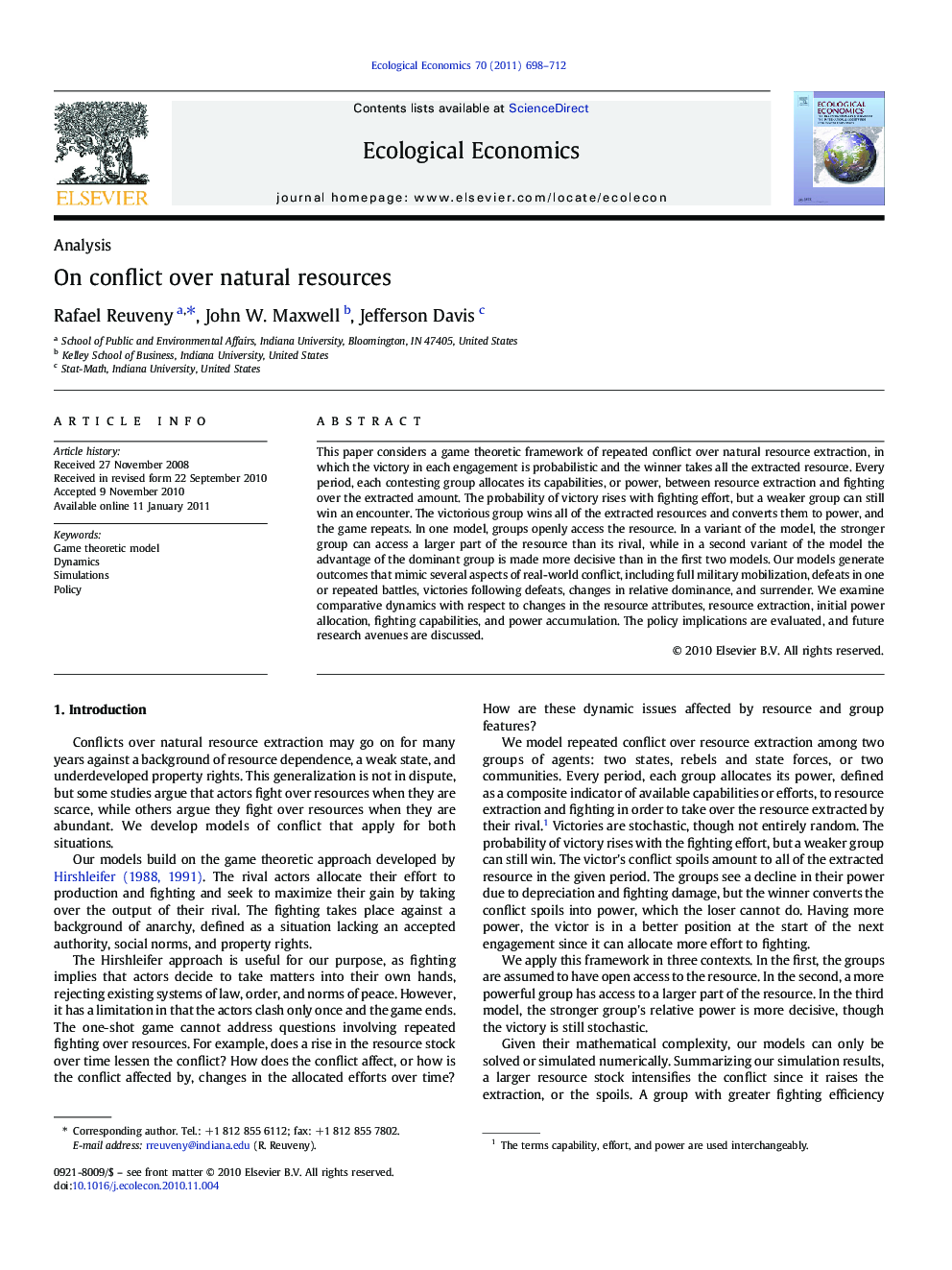| Article ID | Journal | Published Year | Pages | File Type |
|---|---|---|---|---|
| 5050776 | Ecological Economics | 2011 | 15 Pages |
This paper considers a game theoretic framework of repeated conflict over natural resource extraction, in which the victory in each engagement is probabilistic and the winner takes all the extracted resource. Every period, each contesting group allocates its capabilities, or power, between resource extraction and fighting over the extracted amount. The probability of victory rises with fighting effort, but a weaker group can still win an encounter. The victorious group wins all of the extracted resources and converts them to power, and the game repeats. In one model, groups openly access the resource. In a variant of the model, the stronger group can access a larger part of the resource than its rival, while in a second variant of the model the advantage of the dominant group is made more decisive than in the first two models. Our models generate outcomes that mimic several aspects of real-world conflict, including full military mobilization, defeats in one or repeated battles, victories following defeats, changes in relative dominance, and surrender. We examine comparative dynamics with respect to changes in the resource attributes, resource extraction, initial power allocation, fighting capabilities, and power accumulation. The policy implications are evaluated, and future research avenues are discussed.
Research Highlights⺠Models of militarized conflict over resources that mimic real-world battles. ⺠Strategic behavior determines military power accumulation and fighting intensity. ⺠External economic aid and production support can exacerbate the conflict. ⺠External military aid to one side can reduce fighting and end the conflict sooner. ⺠Resource access control reduces fighting, resource abundance increases fighting.
